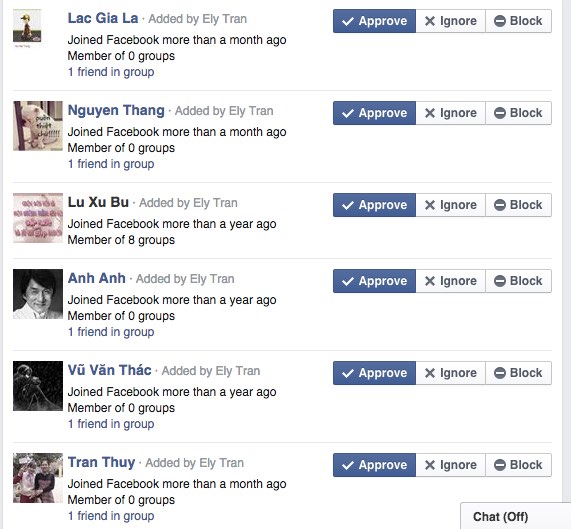Though I know it’s not the best thing to do, the minute I wake up, I grab the phone from my nightstand. Not to check Twitter, not to look at scores, but instead, to look at Facebook. I go directly to the Facebook groups I manage, because who knows what hell hath broken in my six hours of slumber.
Facebook groups are one of the biggest reasons I think the platform remains popular – especially closed, invite-only groups. At my full-time job, I manage a few groups full of students at the university. Personally, I’m a member of a few, including one for my career coach’s clients, one for the communications and tech sector in higher education, one for the direct selling venture I horribly failed at (but at least I had pretty nails in the process) and a mothers group (because as a first-time mom come May, I need all the help I can get.)
These groups are powerful. In a closed group, there is a feeling that you can ask and share whatever you want because your fellow members are like-minded. In the student groups I manage, they look for roommates, ask for help navigating financial aid and grumble a ton about the lack of snow days. In the mothers group, many use it as a Google alternative, asking what to do if their three month old has a rash or what the best car seat is. (Holy smokes, are there opinions on car seats.)
But so much can go wrong in Facebook groups. Here are three tips for successfully moderating closed groups to maximize their potential.
Keeping the door wide open
A closed group is closed for a reason – the exclusivity is warranted because either the topics or the people involved. If you look at your requests panel and “approve all” without a vetting process, there might be point to having a closed group.
There are many closed groups (especially surrounding colleges and universities) who are targets for Facebook spam accounts…very obvious spam accounts. This is what I often see when I wake up and check Facebook on my phone:
Christmas Carol? Sock Bun? I’ve seen people change their Facebook names to avoid being searchable, but something tells me these accounts aren’t that.
If I don’t try to weed out the spam accounts, they either post scams (looking for students to give their Social Security numbers or trying to rope them into work from home schemes), post pornography, or use the “in” to the group to start adding their fellow spammers.
Facebook often shuts down spam accounts before you even have the chance to approve them (the name in the black font above means that the account has been deleted.) If you see an account requesting access to your group, and the name is in black text and isn’t an active link to their account, they’ve been shut down.
No matter how many requests you receive, don’t just approve all. Doing so proves the closed nature of the group pointless. You might as well make it open.
If the exclusive nature of the group is important to you, take your time to approve each person. For the groups I manage for a university, I run names through the university’s directory. If it doesn’t come up there, I look at the person’s profile and see if I can discern if they are actually a part of the institution. I also take a moment to scroll down and see what other Facebook groups they belong to. If it looks like they’ve joined every group under the sun, or every university “class of” group in the area (they’re a member of MIT’s, UMass Boston’s, Fisher’s, Emerson’s…), I’m weary. I message them to ask if they are affiliated with the school and why they want to be a part of the group.
Communicate and delete.
Don’t be afraid to use the message function to ask why someone wants in. It is a closed group, you are the admin, and that’s your prerogative as admin to do so. That’s not bad customer service towards them; that’s great customer service towards the other members of the group who are there for the right reasons.
If a member is already in the group, and starts using the group for the wrong reasons, take action. When I grab my phone right when I wake up, I’m really on the search for someone posting inappropriate material on one of the groups. And 80% of the time, that material is of the sexually explicit variety.
The minute I see something posted that belongs on Skinamax, I click on the grey down arrow on the right top of the post, scroll to “Delete and Remove User,” remove them and ban them permanently. (Don’t worry – I won’t post an example of that.) The porno posters never debate their removal, because most of them are spam accounts.
But who does debate their removal? Those who join spam groups with business opportunities and those with the intent of trolling. I respond to their frustrated Facebook messages to me with my clear reasoning: this group is for X purposes, and your actions run counter to those purposes. Stand by the group’s purpose in these interactions.
Set rules and remind your group of them.
It’s difficult to see groups run amuck by shameless promoters, especially in closed groups of clients of a service provider. For example, my career coach’s group had a few members who were there just to promote their own coaching business, and posted links to their own offerings daily. As I wrote this post, she made a great move: she clearly posted group guidelines.
Group guidelines are the way to go in every type of closed Facebook group. You can post brief versions in group descriptions, or post longer versions in the Files section. Make references to both on a regular basis, be it just reminding new members to review them, or highlighting particular sections of them once a week. For example, remind your group that you don’t want members personal messaging each other about their direct sales business or that if a threat is posted, it will have to be reported to authorities.
Managing a closed Facebook group is far from effortless, but the rewards of a well-managed one make it worth it. I’ve helped students through difficult circumstances in the ones I manage, and I’ve found communities of encouragement in those I belong to. If you enter the world of Facebook groups, be ready to invest your time and put your foot down.

